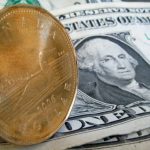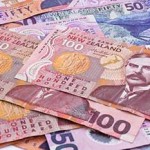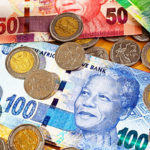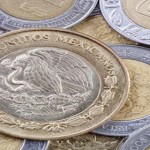US dollar traded in proximity to highs unseen in three years against its Canadian counterpart during late US session on Friday, as Bank of Canada intends to maintain interest rates at low levels for more than one year, while the Federal Reserve Bank trims its monthly monetary stimulus starting January.
USD/CAD touched a session high at 1.0719 at 20:20 GMT on Friday, also the pairs highest point since December 20th, after which it closed at 1.0709, gaining 0.57% for the day. Support was likely to be found at Fridays session low, 1.0619, while resistance was to be encountered at December 20th high and also the highest level since May 2010, 1.0737.
According to a survey of 16 economists conducted by Bloomberg News, the Bank of Canada would not probably lift borrowing costs until the second half of 2015, as the bank wants to see a stronger global growth, which could support nations exports.
Bank of Canada Governor Stephen Poloz said in an interview on December 17th that inflation rate in the country has been lower than policymakers can explain, which urged him to decide to drop a bias to raise interest rates. The central bank’s benchmark interest rate is currently kept at 1%.
“The thought is that if the Fed is in a position to cut back a little bit on its quantitative easing, the next step would be an actual tightening or raising of short-term interest rates,” said Don Mikolich, executive director of foreign-exchange sales at Canadian Imperial Bank of Commerce, cited by Bloomberg. “As short rates go up, money that flows around looking for a higher return would find the U.S. dollar to be more attractive, to the detriment of the Canadian dollar.”
Meanwhile, the Federal Reserve Bank said on December 18th that it intends to reduce its monthly asset purchases in January to $75 billion from $85 billion, while also reinforcing its position that the benchmark interest rate will remain low for an extended period of time. Bank’s policymakers will probably trim asset purchases in increments of $10 billion over the next seven meetings before ending the program in December 2014.
The yield on Canadian 10-year government bonds rose six basis points, or 0.06 percentage point, to reach 2.78% on Friday, marking its highest level in more than three months. At the same time, the yield on US benchmark 10-year government bonds climbed to its highest level in two years, touching 3.02%.
Elsewhere, the Canadian currency reached its weakest level in four years against the euro, with EUR/CAD cross touching a daily high at 1.4818 on Friday, after which it closed at 1.4718, surging 0.95% on a daily basis.
“The euro is on fire today,” said Brad Schruder, director of foreign exchange at Bank of Montreal, by phone from Toronto, cited by Bloomberg News. “It could be a large money manager out of Europe that needs to rebalance, and in thinly traded markets you can see exaggerated moves.”
GBP/CAD pair also traded on positive territory during yesterdays late US session to close at 1.7644, rising 0.95% for the day.
The loonie, as Canadian dollar is also nicknamed, has depreciated 4.5% during this year against nine developed-nation currencies, which are tracked by the Bloomberg Correlation-Weighted Index. The US dollar has gained 4% during the same period, while the euro has demonstrated the largest advance among the group, 8.8%.





